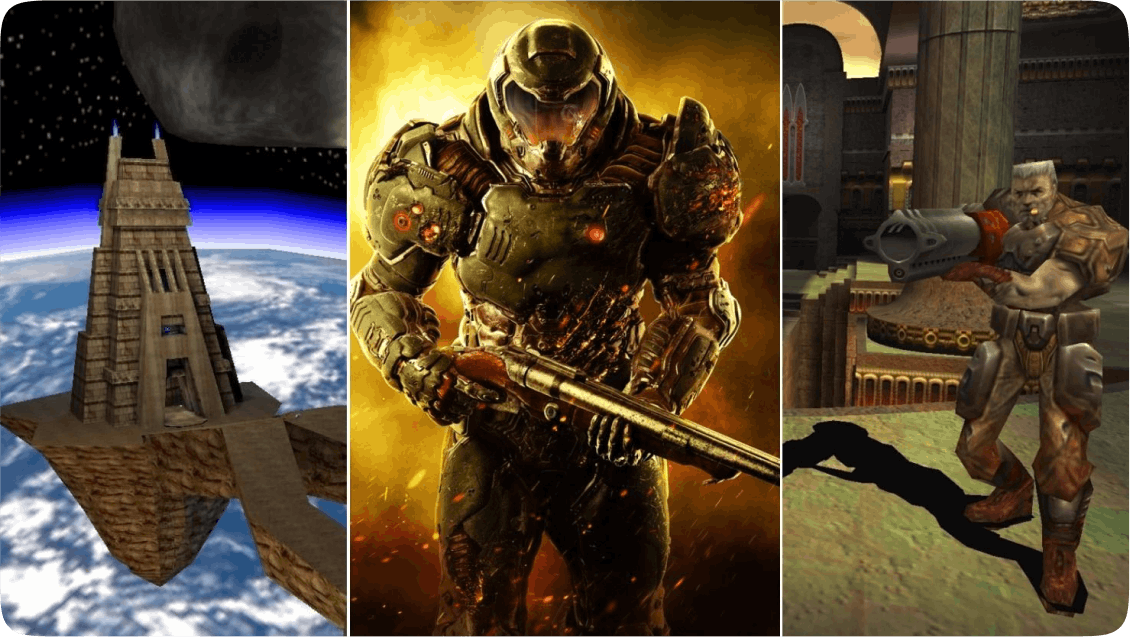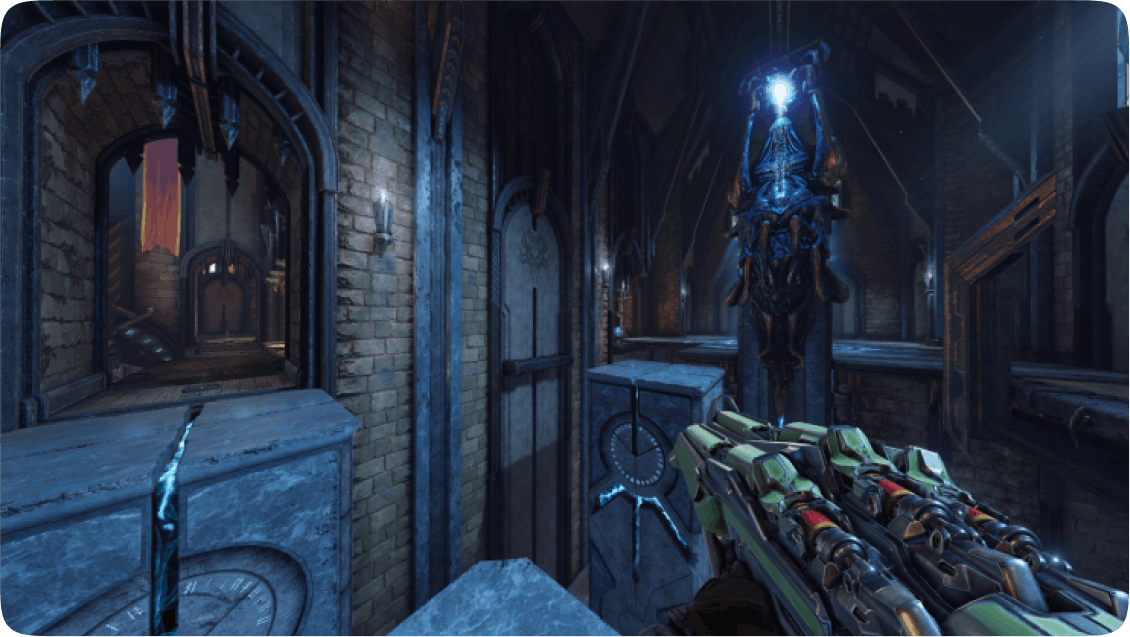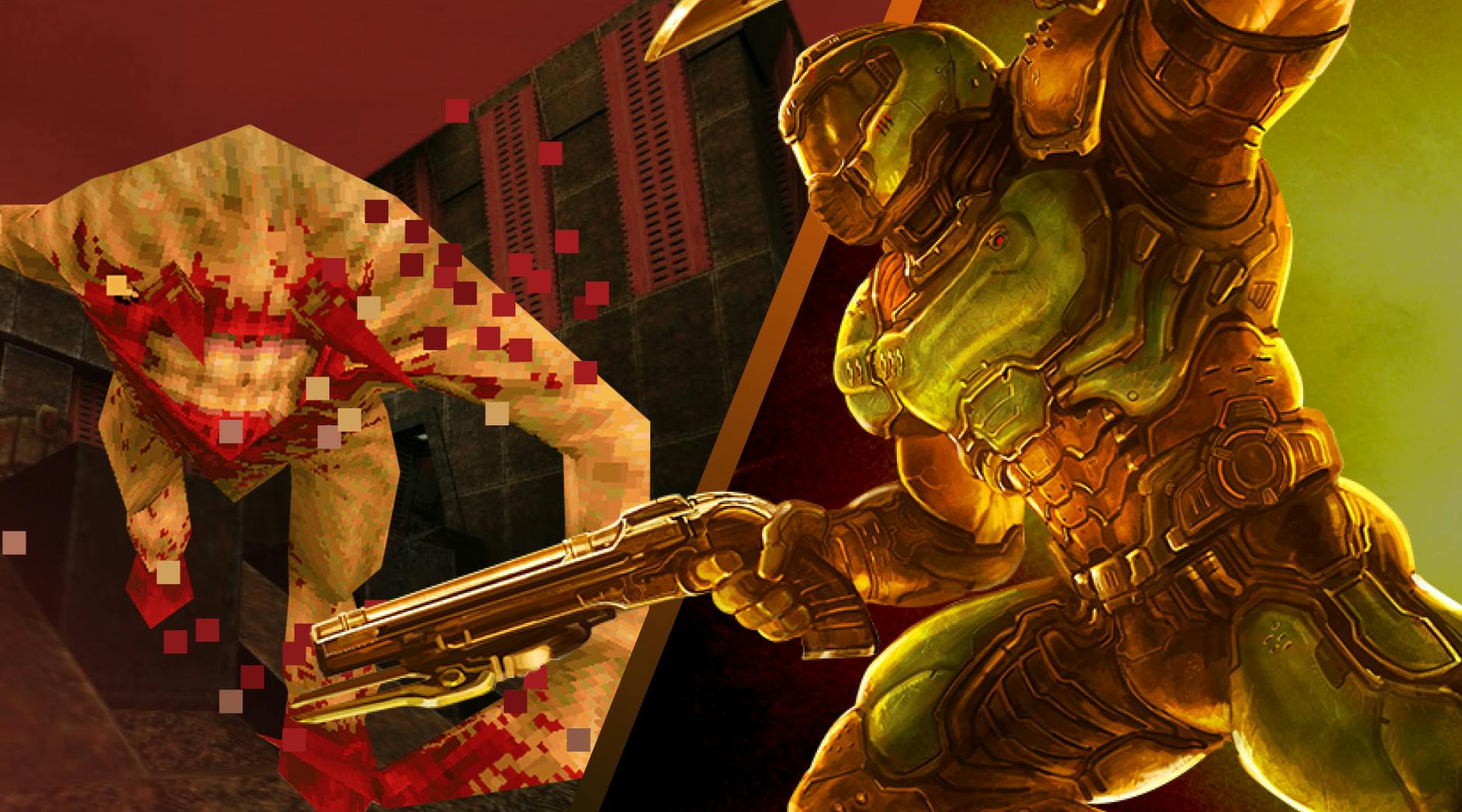Arena shooters — the founding genre of esports as we know it
There’s a first time for everything. Arena shooters were first in many regards and paved the way to modern esports by giving us the first professional esports leagues, sponsorship deals, competitions with prize money and even such novel phenomena (at the time) as the first professional cyberathlete and the first personal esports brand.
How did it happen, what games made it possible, and what’s the situation today? Let’s find out!

Source: gamerant.com
Description: Arena shooter is a sub-genre of FPS (first-person shooter) with a focus on mechanical skills and reflexes. Players compete on compact arena-type maps in 1v1 mode. The games are characterized by high speeds, hectic movement with lots of jumps, varied weapon selection with different skill-based mechanics (railguns and rocket launchers, such as the legendary BFG).
Notable titles: Doom, Unreal Tournament, Quake (Champions), HL2 Deathmatch, and a few team-based takes on the genre (Halo, Overwatch)
Timeline and history facts
Doom Deathmatch Multiplayer
Players start competing over local networks as well as via DWANGO, an early online gaming service.
1993Quake Release
Quake, the most successful arena shooter, was released by ID Software.
1996First QuakeCon
The first LAN party and conference dedicated to ID Software’s games and gaming.
August 1996Red Annihilation Tournament at E3 Expo
Dennis “Thrash” Fong wins the grand prize, a Ferrari 328 GTS, and gets recognized by the Guinness book of Records as the first professional videogamer.
May 1997The Cyberathlete Professional League (CPL) was founded.
June 1997Quake III Arena Release
The following year Quake III gets picked up by the World Cyber Games
1999Fatal1ty hardware and gaming gear brand
The first LAN party and conference dedicated to ID Software’s games and gaming.
2004
Current state of affairs
The Unreal Tournament series was pretty much abandoned in 2007 by Epic Games: UT3 was released in 2007, followed by an unsuccessful attempt at a reboot in 2014.
The Quake series never quite replicated the success of Quake III, and the newest iteration of the game, called Quake Champions (2017) is now a free-to-play game on Steam that doesn’t get too much attention. It has a solid following, but as a competitive game it’s not nearly as successful as it used to be: there are not that many tournaments with prize pools.
There are a few factors that could explain why the genre is past its prime now, its downsides, in other words:
- High entry barrier Modern games tend to be more enjoyable for casual players from the start and have a different learning curve. The 1v1 mode is too hardcore and outdated.
- Team-based games promote social interactions Your teammates help you learn faster and make games more enjoyable. Most popular games are either team-based or have popular team-based modes in which players can compete teamed-up with their friends. It makes games more accessible and helps them go viral quickly.
- Quake Champions’ botched launch The game launched in 2017 and was initially not free-to-play, but had to compete with many projects that in fact were free. The devs did not get monetization right, and introduced loot boxes and weird characters unlocking rules that many people labeled “pay-to-win”. The problems were addressed too late, even though the shooter is in a much more agreeable state as of now.
- Gaming platforms Arena shooters became somewhat obsolete thanks to the rising popularity of console gaming. For instance, in 2008 Quake was replaced in WCG by Halo 2 for Xbox360. Consoles could only support a different kind of shooter due to the limitations of their controllers, and these games were definitely not hardcore arena shooters with the same mechanics, yet they were getting increasingly popular.
Conclusion. Why is the genre worth exploring now?

Source: venturebeat.com
As a rather brief overview of the history of the genre shows, it’s seen better times, but we still see some positives and can recommend the genre to some gamers looking for something fresh.
Quake Champions is not very popular, but it still has a small competitive scene and enough players online to enjoy a few matches, and Unreal Tournament is potentially in for a reboot once again. You can get into the genre from a more casual side, as such games as Overwatch and Apex Legends can offer similar gameplay elements, but a more social experience. Mobile games like T3 Arena borrow a lot from arena shooters too, and then who knows - maybe you’ll move onto some more hardcore games if the mood hits you?
TL;DR
- You’ll enjoy arena shooters if you like unforgiving, fast-paced gameplay, relying more on reflex and concentration, rather than strategy or planning. Easy to learn, but hard to master.
- The genre is not very popular, do not expect to earn prize money or live off streaming these games.
- Classic arena shooters are played 1v1 in small arenas with lots of verticality and powerups. If you’re not playing like this, you’re trying a different genre.
